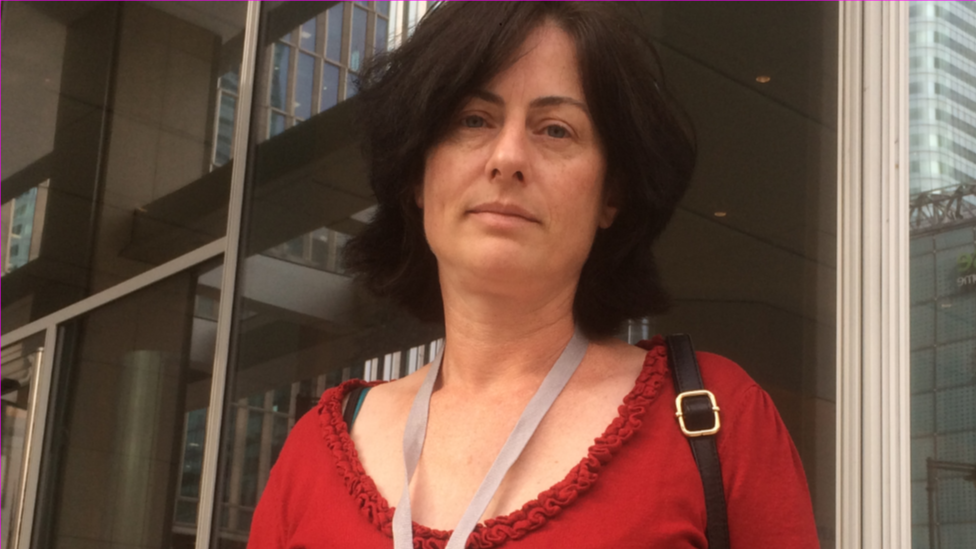Women's health inquiry: Anger at slow progress
- Published
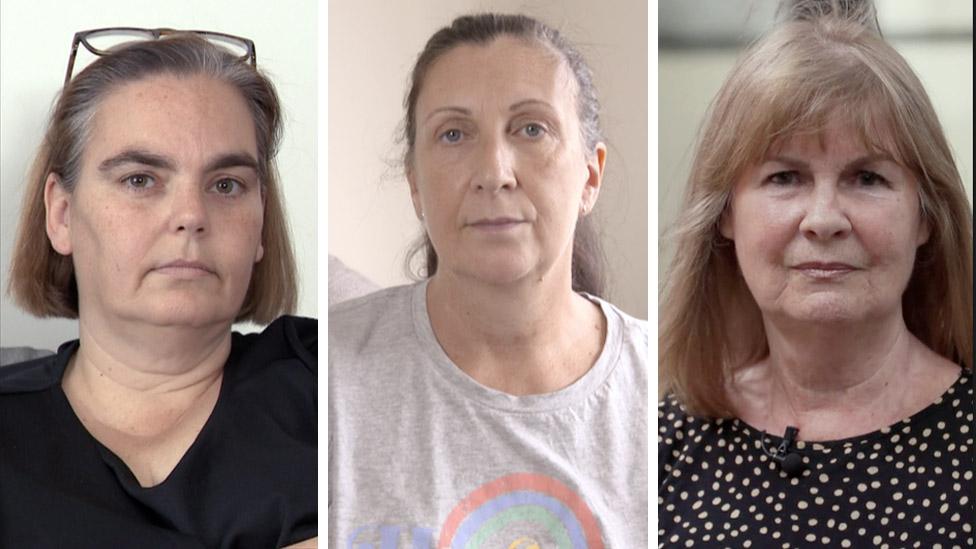
Leanne Matthews, Alison Jackson and Marie Lyon all gave evidence to the review
Baroness Julia Cumberlege, who led a critical review into how the health service has treated female patients, says she is angry and frustrated not enough progress has been made.
Her 2020 report looked into two drugs and a medical device which caused women or their babies harm.
It made a list of recommendations to support victims and prevent future, avoidable damage.
The four UK governments are still considering the recommendations.
A spokesperson for the Department of Health and Social Care in England plans to fully respond later this year.
Baroness Cumberlege and her team spent two years speaking to more than 700 women and their families who experienced complications linked to three treatments.
The first is sodium valproate. This is an epilepsy drug which, if taken during pregnancy, can increase a baby's risk of developmental disorders and physical abnormalities. Campaigners say women are still not being properly warned of the risks.
The second is pelvic mesh implants, which are used to treat prolapse and incontinence. However, complications can cause debilitating pain "like shards of glass inside the body". The procedure is only offered on the NHS in exceptional circumstances.
Finally primodos - a hormonal pregnancy test thought to be associated with birth defects and miscarriages, something manufacturer, Schering, now part of Bayer, denies. It was withdrawn from the market in 1978.
The First Do No Harm report concluded thousands of lives were ruined because officials failed to listen to female patients.
It made nine recommendations, but only two of them have been fully implemented.
These are a government apology to the victims and the promise to introduce Patient Safety Commissioners, an advocate for patients, in England and Scotland.
'Avoidable harm will continue'
"If all our recommendations are not implemented, avoidable harm will continue to be performed," says Baroness Cumberlege. "I hoped we would have achieved so much more in this past year. I am very angry and frustrated.
"These people are still suffering and need care and compassion. I will take their heartbreaking stories to my grave."
Baroness Cumberlege is urging the government to reconsider its decision to rule out setting up a Redress Agency, which would compensate women and families for the suffering they have experienced.
The government is, however, looking at setting up a payment scheme that would cover the cost of providing additional care and support for those affected.
Lawyers representing families agree with both recommendations and have written to the Secretary of State for Health, Sajid Javid, asking him to implement them.
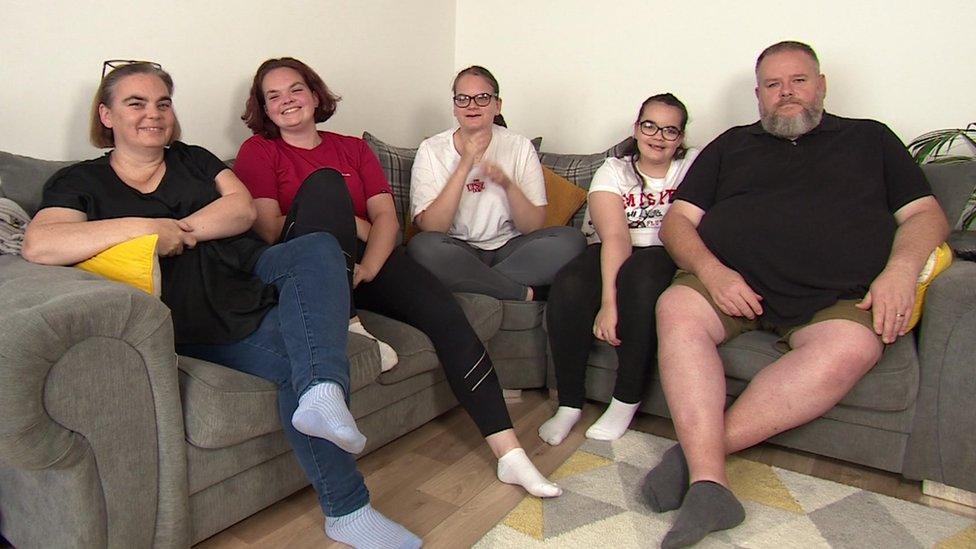
All three children in the Matthews family were born with health and learning problems after their mother took sodium valproate while pregnant.
Multiple medical conditions
Like thousands of women, Leanne Matthews was never warned of the risks of taking sodium valproate during her three pregnancies. Her children were all born with many health and learning problems, and she fears for their future without financial support.
"It's going to be worrying when we're not here," she says.
Her husband Warren agrees: "What jobs are they going to do? What prospects do they have? As soon as you put down on your CV that you've got multiple medical conditions, who's going to employ you?
"When the buffer of mum and dad is gone, it's going to be the eldest daughter who has to take that responsibility, which she shouldn't have to do. She's got her own problems."
Baroness Cumberlege also recommended that specialist centres should be set up to help women who have experienced complications following a pelvic mesh procedure, and to provide care for those affected by medications taken during pregnancy.
Seven mesh centres have now been set up in England, and one in NHS Greater Glasgow and Clyde - but the other point is still being considered.
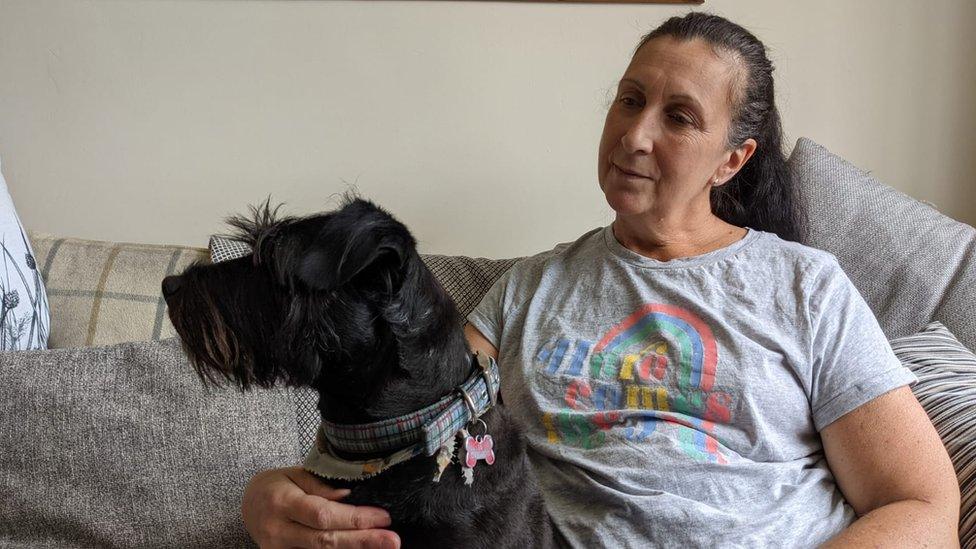
Alison Jackson, from South Derbyshire, struggled to walk following her mesh repair
Alison Jackson, from Swadlincote in South Derbyshire, used to be a keen runner, but after having mesh fitted she could hardly walk.
Two weeks ago, she had her implant removed at one of the new centres, and would like to see more people benefit.
'Permanent nerve damage'
"The referral process should be easier and there should be more sites, though only if there are enough surgeons with the right expertise," she said.
"Mesh removal is like getting chewing gum out of hair. I know women who have been left with permanent nerve damage. There's no guarantee I will get better, but any improvement is a good thing."
Alison also wants the specialist services to be extended to all mesh-injured patients, such as hernia and rectopexy.
Twelve months after the Cumberlege review was released, the chair of the Association for Children Damaged by Hormone Pregnancy Tests says she's losing confidence the government will make all of the recommendations law.
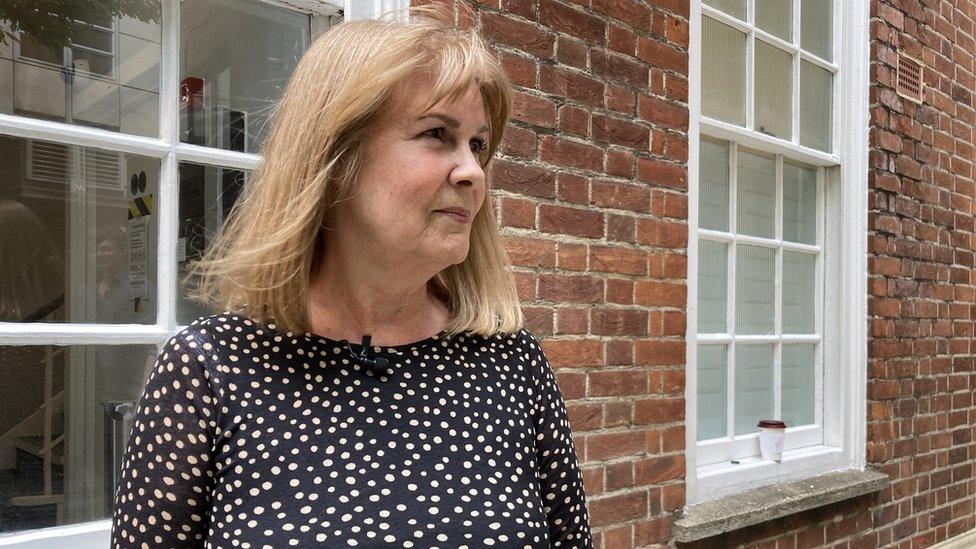
Marie Lyon was prescribed Primodos.
Marie Lyon was prescribed primodos and later gave birth to a daughter whose limbs were not fully formed.
"It will all be down to money and what can they get away with," she says.
"That is betraying all future patients of the NHS, which is a disgrace."
Related topics
- Published26 June 2017
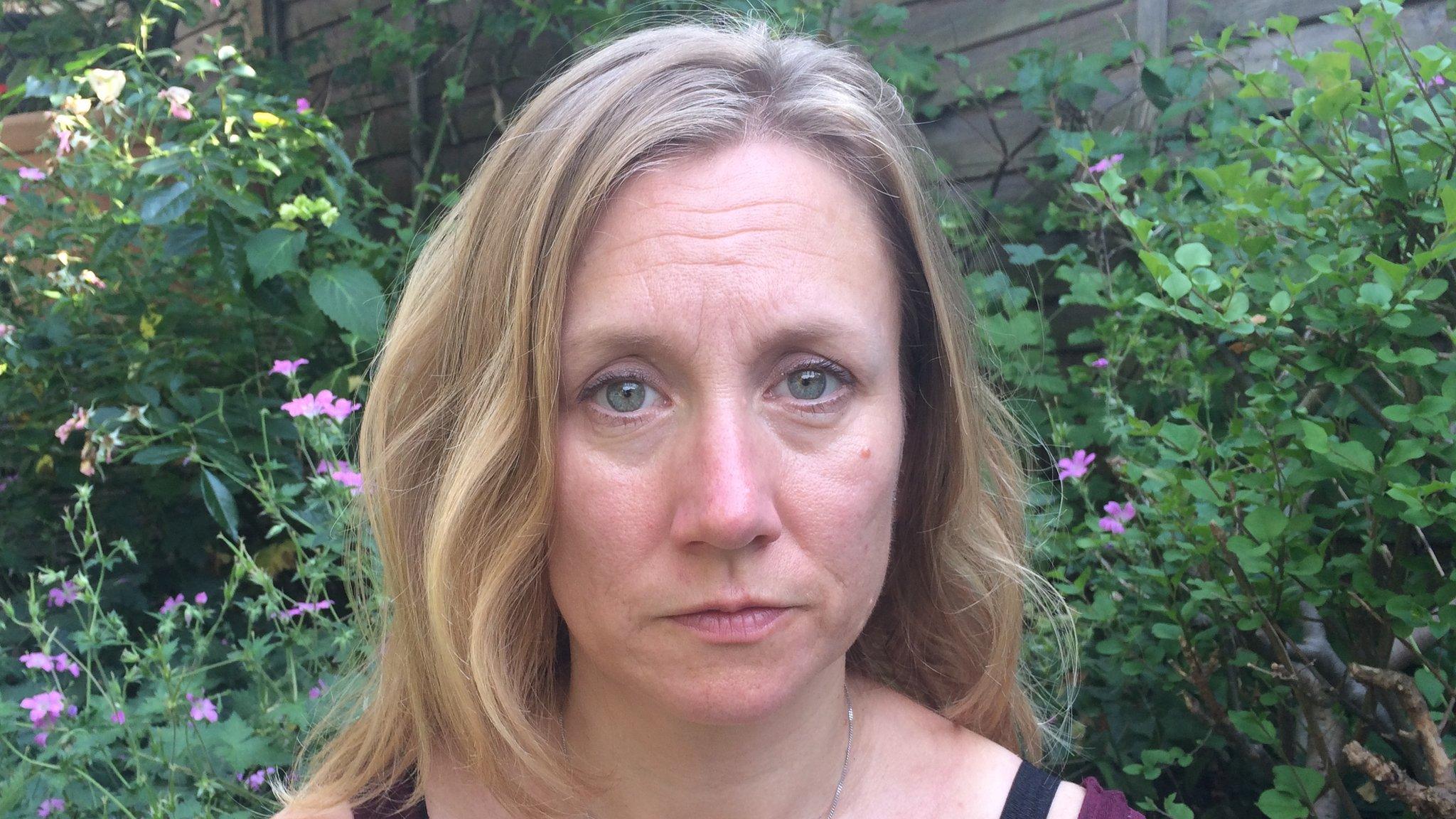
- Published18 October 2017
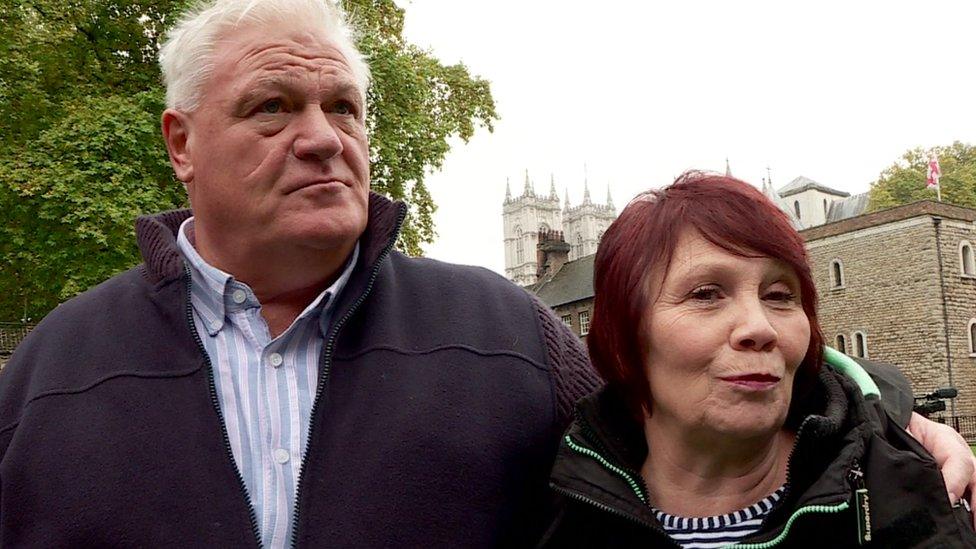
- Published22 January 2018
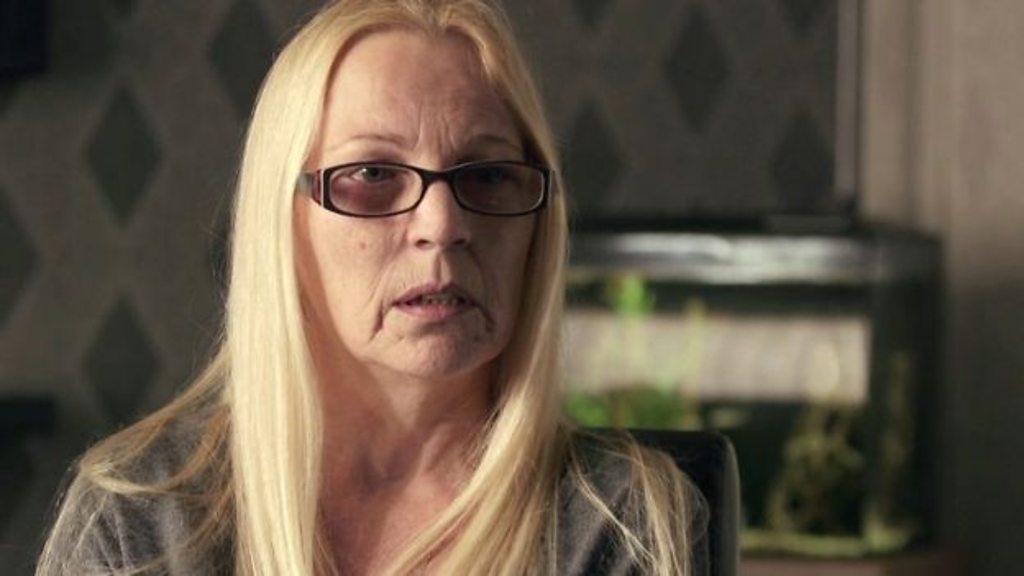
- Published21 September 2017
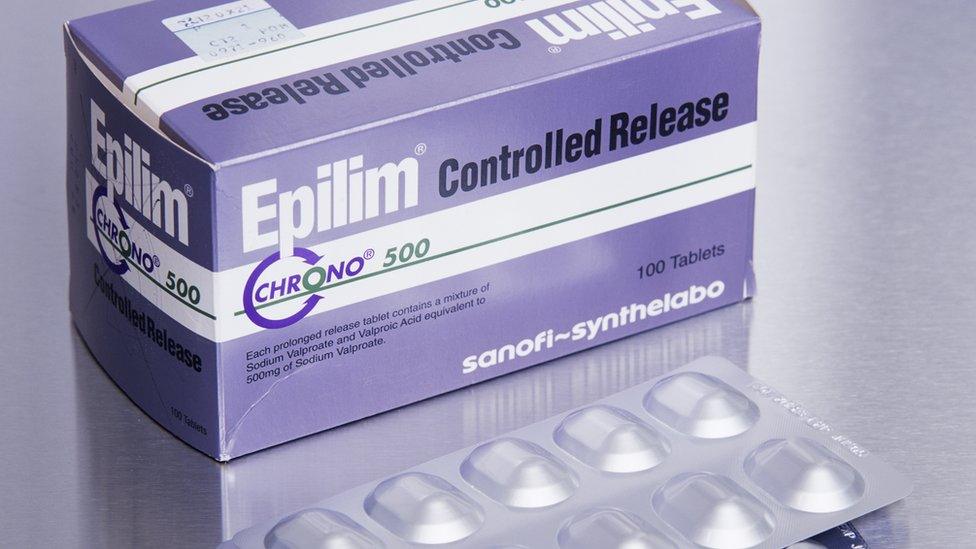
- Published22 September 2017
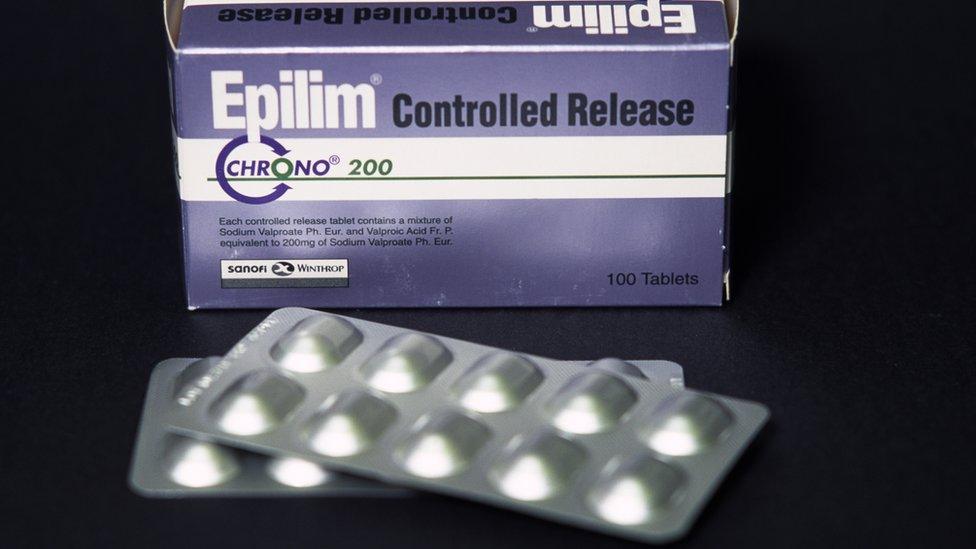
- Published26 September 2017
